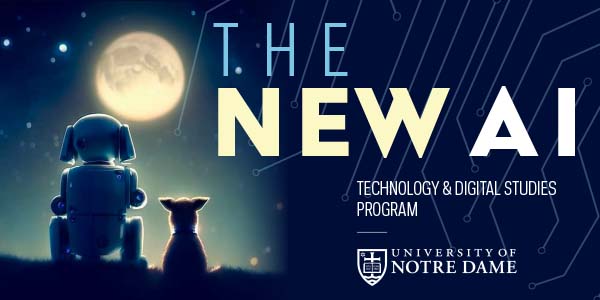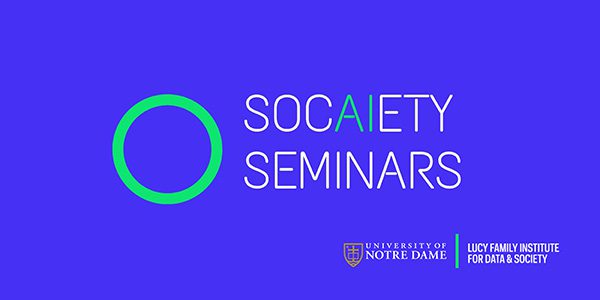The first virtual event in the Numbers Can Lie series featured a discussion between Roger Woodard, teaching professor in the Department of Applied and Computational Mathematics and Statistics, and director of the Online MS in Data Science, and Nitesh Chawla, the Frank M. Freimann Professor in the Department of Computer Science and Engineering, and the founding director of the Lucy Family Institute for Data and Society. The discussion focused its message on how data science can be used to improve people’s lives. The key points in this event focused on the meaning of data science, how we analyze data, and how data science can have a positive impact on our society and the future.
Woodard started off the event by giving some background on the data science field. Data science is a fast-moving, ever changing field that moves across many different industries. This event is here to help share how it plays a role in our lives. Chawla further defined data science as a way for humans to find patterns and develop predictions based on those patterns. Both Woodard and Chawla acknowledged the fact that there can be negative connotations associated with data science and its purpose. For example, many people associate negative connotations with the term data mining. This event shed some light on the positive impact and benefits data science is capable of creating.
After defining data science and its capabilities, the conversation turned to an exploration into how data is analyzed. According to Chawla, data scientists try to find patterns in data to understand a question or phenomenon, then an algorithm is built based on that pattern. Chawla mentioned that an important part of successfully analyzing data and coming up with algorithms is involving many different people with different backgrounds. With the power of data comes great responsibility, so why put that all on one scientist. Having multiple people look at data will invoke conversations and create a better understanding of the problem aimed to be fixed.
Woodard and Chawla closed their conversation by addressing the positive impacts that data science can have on the future, if used properly. Analyzing data is only one part of data science. Another part involves empathy, mindfulness, and engagement around pulling out the story behind the data. Qualitative data is just as important in addressing a problem as statistical data. Innovation in data science is not just about technology, but the people being served. This idea will help data science bring positive change and impact to the world. Chawla believes the data science master’s program at Notre Dame is not only developing students that can create and impact the future through their work but also help them to see the implications to society they may be contributing to.
Visit the event page for more.


